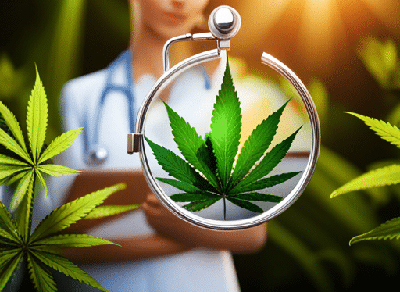Cannabis, often colloquially referred to as marijuana, has been a topic of controversy, stigma, and debate for decades. However, as societal attitudes evolve and scientific research progresses, there’s a growing recognition of its potential benefits and a push for destigmatization. Destigmatizing cannabis involves challenging misconceptions, promoting education, and advocating for responsible use. In this article, we’ll explore the reasons behind the stigma, the evolving perceptions, and the importance of destigmatizing cannabis for individuals and society as a whole.
The Roots of Stigma:
The stigma surrounding cannabis has deep historical roots, often tied to political agendas, racial biases, and misinformation. In the early 20th century, fueled by anti-immigrant sentiment and racial prejudice, cannabis became demonized in the United States. Propaganda campaigns portrayed it as a dangerous drug that led to violence and insanity, perpetuating fear and stigma within society.
Furthermore, the War on Drugs, initiated in the 1970s, intensified the stigma surrounding cannabis. Classified as a Schedule I substance alongside heroin and LSD, cannabis faced harsh legal penalties, contributing to its negative perception. The criminalization of cannabis disproportionately affected minority communities, exacerbating social inequalities and perpetuating the stigma.
Evolving Perceptions:
 Despite decades of stigma, attitudes toward cannabis have been gradually shifting. One significant factor driving this change is the growing body of scientific research highlighting the therapeutic potential of cannabis compounds, particularly cannabinoids like CBD and THC. Studies have shown promising results in managing various medical conditions, including chronic pain, epilepsy, anxiety, and nausea associated with chemotherapy.
Despite decades of stigma, attitudes toward cannabis have been gradually shifting. One significant factor driving this change is the growing body of scientific research highlighting the therapeutic potential of cannabis compounds, particularly cannabinoids like CBD and THC. Studies have shown promising results in managing various medical conditions, including chronic pain, epilepsy, anxiety, and nausea associated with chemotherapy.
Moreover, the legalization of cannabis for medicinal and recreational use in several jurisdictions has sparked conversations about its regulation, safety, and societal impact. As people witness the regulated market functioning responsibly, perceptions are evolving from viewing cannabis solely as a harmful substance to recognizing its potential as a source of revenue, job creation, and alternative medicine.
Destigmatization Efforts:
Destigmatizing cannabis requires a multifaceted approach involving education, advocacy, and policy reform. Public education campaigns play a crucial role in dispelling myths and providing accurate information about cannabis, its effects, and potential risks. By promoting evidence-based discussions, individuals can make informed decisions about cannabis use and advocate for sensible policies.
Furthermore, highlighting the disproportionate impact of cannabis prohibition on marginalized communities underscores the need for social justice and equity in drug policy reform. Efforts to legalize and regulate cannabis should prioritize addressing past injustices, such as expunging criminal records for non-violent cannabis offenses and reinvesting in communities disproportionately affected by the War on Drugs.
The Role of Healthcare Professionals:
 Healthcare professionals play a pivotal role in destigmatizing cannabis by engaging in open and non-judgmental discussions with patients. As more patients inquire about cannabis for medical purposes, healthcare providers must stay informed about the latest research, regulations, and best practices. By offering guidance on dosage, administration methods, and potential interactions with other medications, healthcare professionals can ensure safe and responsible use of cannabis for therapeutic purposes.
Healthcare professionals play a pivotal role in destigmatizing cannabis by engaging in open and non-judgmental discussions with patients. As more patients inquire about cannabis for medical purposes, healthcare providers must stay informed about the latest research, regulations, and best practices. By offering guidance on dosage, administration methods, and potential interactions with other medications, healthcare professionals can ensure safe and responsible use of cannabis for therapeutic purposes.
Moreover, integrating cannabis education into medical school curricula and continuing education programs can equip healthcare professionals with the knowledge and skills necessary to address patient inquiries effectively. By embracing cannabis as a legitimate medical option, healthcare providers contribute to reducing stigma and empowering patients to explore alternative treatments.
Benefits of Destigmatization:
Destigmatizing cannabis has far-reaching benefits for individuals, communities, and society as a whole. By challenging negative stereotypes and providing accurate information, individuals can make informed choices about cannabis use, whether for medical or recreational purposes. This informed decision-making reduces the likelihood of misuse and promotes responsible consumption practices.
Moreover, destigmatizing cannabis can lead to improved access to medical cannabis for patients suffering from debilitating conditions. Removing legal barriers and reducing societal stigma can facilitate research, innovation, and the development of new cannabis-based therapies. This, in turn, has the potential to alleviate suffering, improve quality of life, and reduce healthcare costs associated with treating certain medical conditions.
Additionally, destigmatization can foster economic growth and create new opportunities in the cannabis industry. Legalization and regulation create jobs, generate tax revenue, and stimulate economic activity in communities where cannabis is cultivated, processed, and sold. By embracing cannabis as a legitimate industry, societies can harness its potential while ensuring public health and safety through responsible regulation.
Conclusion:
Destigmatizing cannabis is a complex but essential endeavor that requires collective effort from policymakers, healthcare professionals, educators, and the general public. By challenging misconceptions, promoting education, and advocating for sensible policies, we can shift societal attitudes toward cannabis and realize its potential as a source of healing, innovation, and prosperity. Through destigmatization, we can build a healthier and more compassionate future for all.

